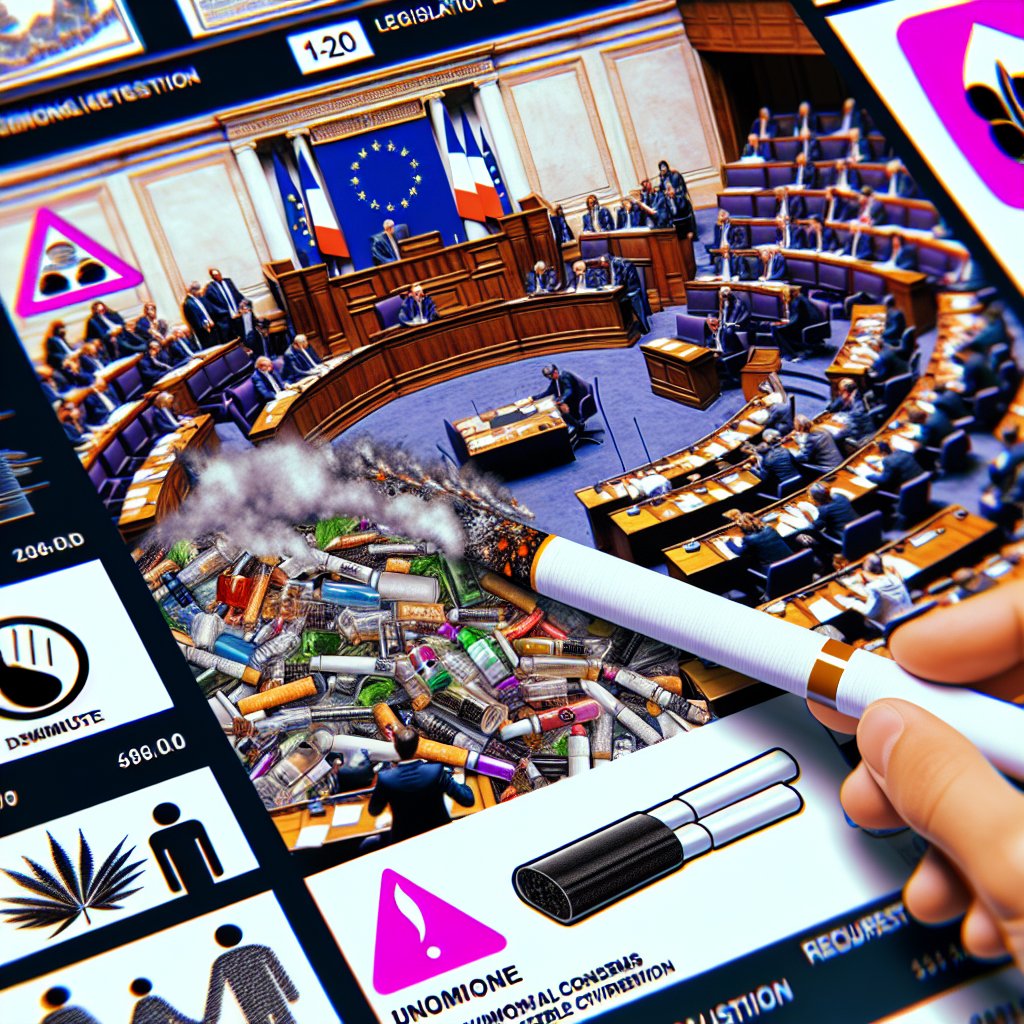Content created by AI
France Targets Disposable E-Cigarettes: The Fight Against Teen Addiction and Environmental Harm
Amid growing concerns about the impact of vaping on youth and the environment, France has taken a significant step by proposing a ban on single-use, pre-filled e-cigarettes, commonly known as "puffs." The decision, emanating from a detailed appreciation of the devices' appeal to teenagers and their ecological footprint, resonates with a unanimous consensus in the National Assembly. The proposed measure aims to curb what health officials describe as a gateway to nicotine addiction and an environmental burden.
Health Minister Aurelien Rousseau conveyed the apprehension that these disposable e-cigarettes serve as a conduit to severe addiction. Their ease of concealment, coupled with the enticing array of sweets-like flavors, poses a particular menace, affording adolescents the opportunity to engage in vaping without parental knowledge. Francesca Pasquini, the deputy who pioneered the bill's inception in November of the previous year, emphasizes this concern, spotlighting the affordability and appealing taste profiles as critical factors driving their popularity among the youth.
The French government's collective stance against "puffs" is reflected in the remarks of Michel Lauzzana, who tagged these products as insidious traps targeting children and teenagers, a sentiment echoed by France's National Academy of Medicine. The unanimity of the vote in the lower house, with support spanning political spectrums and the explicit endorsement of Prime Minister Elisabeth Borne, underscores the legislative push to formalize the ban.
However, the vote was not without its nuances. Far-left lawmaker Rachel Keke encouraged the government to lead by example, a jab pointedly directed at Prime Minister Borne who has been noted to vape in parliament sessions. Yet, beyond the realms of personal conduct and public health, the disposable e-cigarettes have also been the object of ecologically oriented critique, labeled as "environmental calamity" by Rousseau. Pasquini underscored the considerable environmental toll these e-cigarettes exact, pointing to their composition of plastic and lithium and resource-intensive manufacturing processes.
The inevitable march of the proposal to the Senate, and subsequently the nod from the EU Commission, could pave the way for an operative ban by September 2024. France's approach to severely restrict e-cigarette use closely follows precedents set by Germany and Ireland.
This legislative initiative is but one element of a broader anti-smoking crusade orchestrated by the French government, which has declared a war on smoking in beaches, public green spaces, and the vicinity of educational institutions. A concurrent financial deterrent is set to be implemented, as cigarette taxes are poised to escalate progressively over the upcoming years. This slew of measures aims to achieve what President Emmanuel Macron ambitiously envisioned in 2021: fostering the first tobacco-free generation by 2032.
France's earnest endeavor to tackle tobacco use, underscored by the stark reality of 75,000 preventable deaths annually, transcends mere statistical significance. As deputy Karl Olive aptly expressed, "They are not just statistics," the pervasive harm of tobacco consumption has a profoundly human dimension, manifest in individual tragedies and familial grief spread nationwide.










